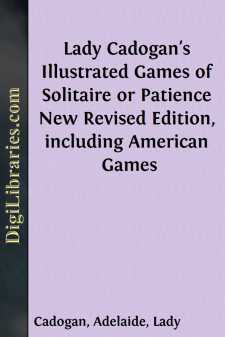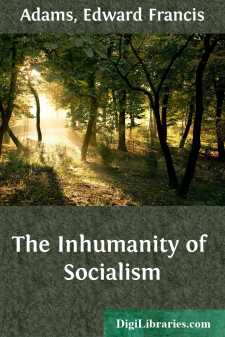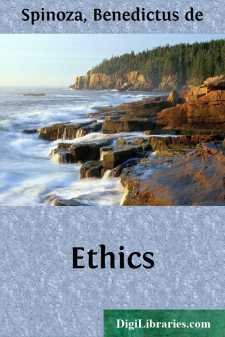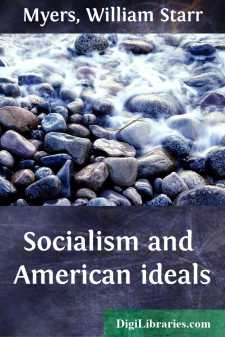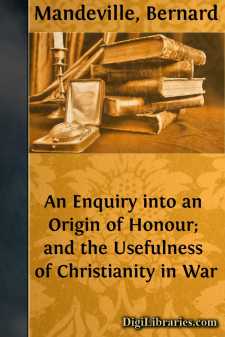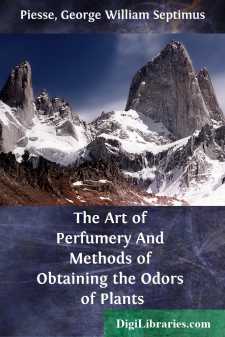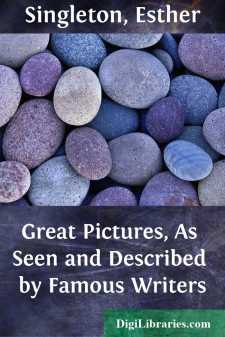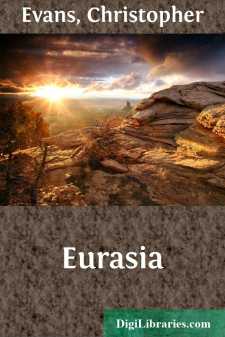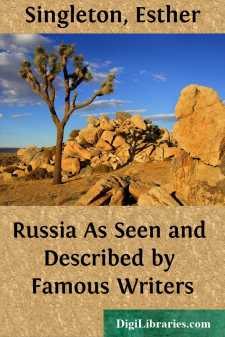Non-Classifiable
- Non-Classifiable 1768
Non-Classifiable Books
Sort by:
by:
Adelaide Cadogan
EXPLANATION OF THE TABLEAUX The blank spaces show where the foundation cards should be played during the deal. EXPLANATION OF TERMS Available cards. Those that are not "blocked" by other cards, i.e., not forbidden by the particular rules of each game, to be used. Released cards. Those which, by the removal of the cards that blocked them, have now become available. Suitable cards. Those whose...
more...
One might write continuously while he lived for or against Socialism and yet at the end of a long and misspent life have said nothing that others had not said before him. Nevertheless, new generations come on and have to learn about Socialism as they learn about other things, for there always have been and always will be Socialists. It is a habit of mind which becomes fixed in a certain number of each...
more...
I. By that which is self—caused, I mean that of which the essence involves existence, or that of which the nature is only conceivable as existent. II. A thing is called finite after its kind, when it can be limited by another thing of the same nature; for instance, a body is called finite because we always conceive another greater body. So, also, a thought is limited by another thought, but a body is...
more...
INTRODUCTION It was about a decade ago that Professor E.R.A. Seligman of Columbia University published his valuable work on the "Economic Interpretation of History," which gave a great impetus to the study, by historians, of the economic influences upon political and social development. Professor Seligman showed conclusively that one of the most potent forces in the growth of civilization has...
more...
The growing interest in the popular tales of Europe has led me to believe that a selection from those of Italy would be entertaining to the general reader, and valuable to the student of comparative folk-lore. The stories which, with but few exceptions, are here presented for the first time to the English reader, have been translated from recent Italian collections, and are given exactly as they were...
more...
I take it for granted, that a Christian is not bound to believe any Thing to have been of Divine Institution, that has not been declared to be such in Holy Writ. Yet great Offence has been taken at an Essay, in the First Part of the Fable of the Bees, call'd An Enquiry into the Origin of Moral Virtue; notwithstanding the great Caution it is wrote with. Since then, it is thought Criminal to...
more...
SECTION I."By Nature's swift and secret working handThe garden glows, and fills the liberal airWith lavish odors.There let me drawEthereal soul, there drink reviving gales,Profusely breathing from the spicy grovesAnd vales of fragrance."—Thomson. Among the numerous gratifications derived from the cultivation of flowers, that of rearing them for the sake of their perfumes stands...
more...
by:
Esther Singleton
THE FISHERMAN PRESENTING THE RINGTO THE DOGE GRADENIGO (BORDONE) THÉOPHILE GAUTIER This picture, which represents a gondolier returning the ring of Saint Mark to the Doge, treats of a legend, an episode of which Giorgione, as we shall see in the next hall, has also painted in a somewhat singular manner. Here is the story in a few words: One night while the gondolier was sleeping in his gondola,...
more...
CHAPTER I. One pleasant afternoon in the month of May, 19—, I launched my boat, and after rowing about half a mile from shore I shipped my oars, stepped the mast, hoisted sail and reclining on a cushioned seat at the stern with my hand on the tiller, I waited for a breeze to spring up, and whilst so doing I fell asleep. How long I slept I know not, for when I awoke my boat was close to shore, and to...
more...
by:
Esther Singleton
PRINCE KROPOTKINE The Russian Empire is a very extensive territory in eastern Europe and northern Asia, with an area exceeding 8,500,000 square miles, or one-sixth of the land surface of the globe (one twenty-third of its whole superficies). It is, however, but thinly peopled on the average, including only one-fourteenth of the inhabitants of the earth. It is almost entirely confined to the cold and...
more...


